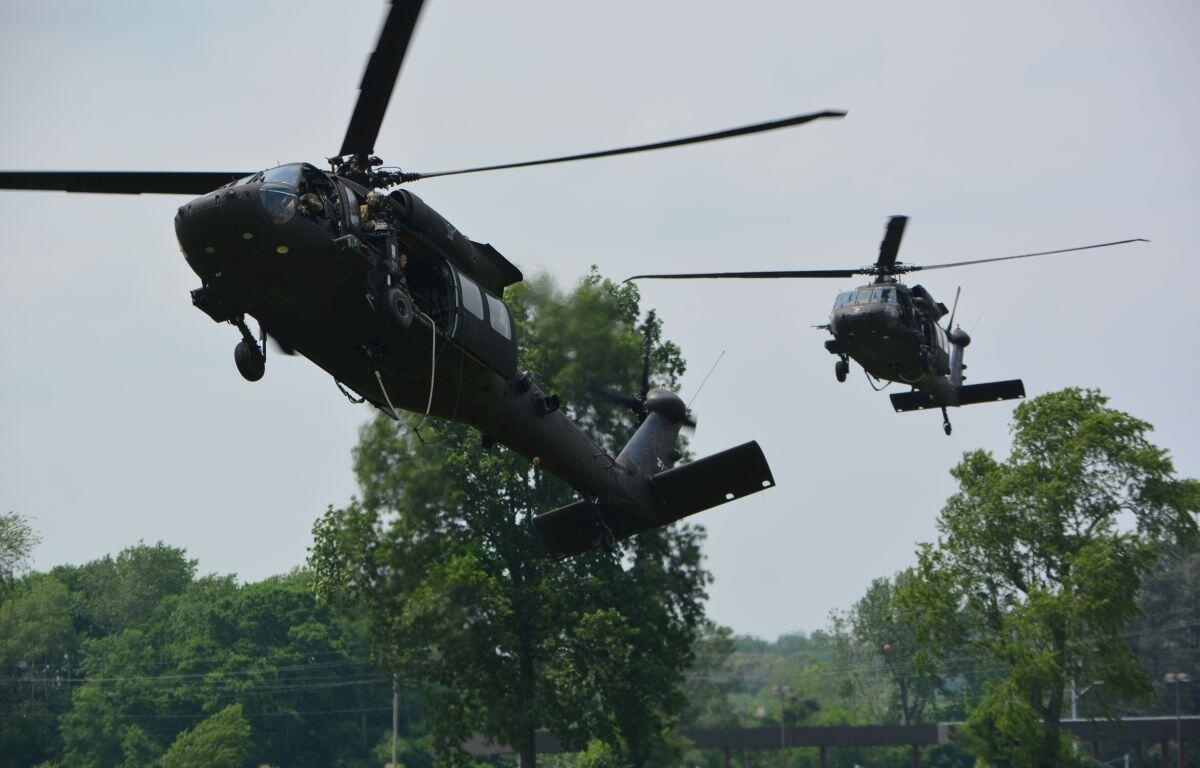This year’s Defense bill includes some key projects at Fort Campbell, chiefly a new training range and a new air traffic control tower.
Sens. Marsha Blackburn of Tennessee and Mitch McConnell of Kentucky, along with Rep. Mark Green of Clarksville, had a hand in pushing for approval of projects to help Fort Campbell in the fiscal year 2024 National Defense Authorization Act (NDAA).
“We are grateful to our lawmakers from both Tennessee & Kentucky who understand the critical role that Fort Campbell plays in global defense and who work hard to ensure that our soldiers have the resources they need to be successful,” said Kelli Pendleton, president/CEO of the Campbell Strong Defense Alliance, in a news release. “Funding for the air traffic control tower at Campbell Army Airfield has been one of our legislative priorities as it is the oldest in the Army. We are glad to see support for it along with many other projects.”
Fort Campbell-specific projects include:
- $38 million for a Multipurpose Training Range.
- $2.5 million to plan and design a new Air Traffic Control Tower.
“Fort Campbell plays a critical role in our nation’s defense,” Blackburn said. “This bill will authorize the long overdue planning and design of a new air traffic control tower at Fort Campbell and secure funding to support a multipurpose training range. Additionally, the bill contains increased funding to support and modernize the AH-64 Apache Helicopter, the backbone of our Army’s helicopter fleet, as well as provide funding for CH-47 Block II Chinook helicopters, the Army’s only heavy-lift helicopter.”
The NDAA also authorizes the following provisions for servicemembers and their families, according to Campbell Strong:
- Secures a 5.2% pay raise for servicemembers, the highest pay raise in 22 years, to offset inflation.
- Provides scholarship opportunities for recruits enrolled in community and junior colleges and increases scholarship opportunities for those pursuing military health careers.
- Authorizes quality improvements for military enlisted barracks, including the replacement of barracks that do not meet basic standards.
Other key projects
Blackburn said the bill also promotes innovation by involving soldiers in developing new military equipment.
“Through the Pathfinder Program, soldiers at Fort Campbell will continue to collaborate directly with elite research teams at Vanderbilt University, the University of Memphis, Tennessee Technological University, and the University of Tennessee at Knoxville to develop cutting-edge equipment,” she said. “Recently, Tennessee researchers designed a lightweight exoskeleton for soldiers to wear that would allow them to do heavy lifting without hurting their backs and increase their endurance. Soldier-led innovation is what will keep Tennessee and America at the forefront of military preparedness.”
Congressman Green had other additions in the NDAA, including one to establish a Polish-American Special Operations Forces (SOF) military exchange training program, and another to stop the sale of Chinese-manufactured goods in commissary stores and base exchanges.
“The history between the United States and Poland can be traced back to the Revolutionary War,” Green said. “Since the end of the Cold War, our two nations have stood together against the threat of communism and authoritarianism. A Special Operations Forces exchange program would be a major step in strengthening our alliance and military readiness against the rising threat of Communist China and Putin’s Russia.”
Green called the commissary bill a win for military families.
“Every day, the Chinese Communist Party looks for new ways to exploit the United States and undermine our global influence,” Green said. “We all know this tyrannical regime has no regard for our laws and will attempt to steal our technology and military secrets any chance they get. We would be foolish to continue allowing the CCP to supply our military bases.”


